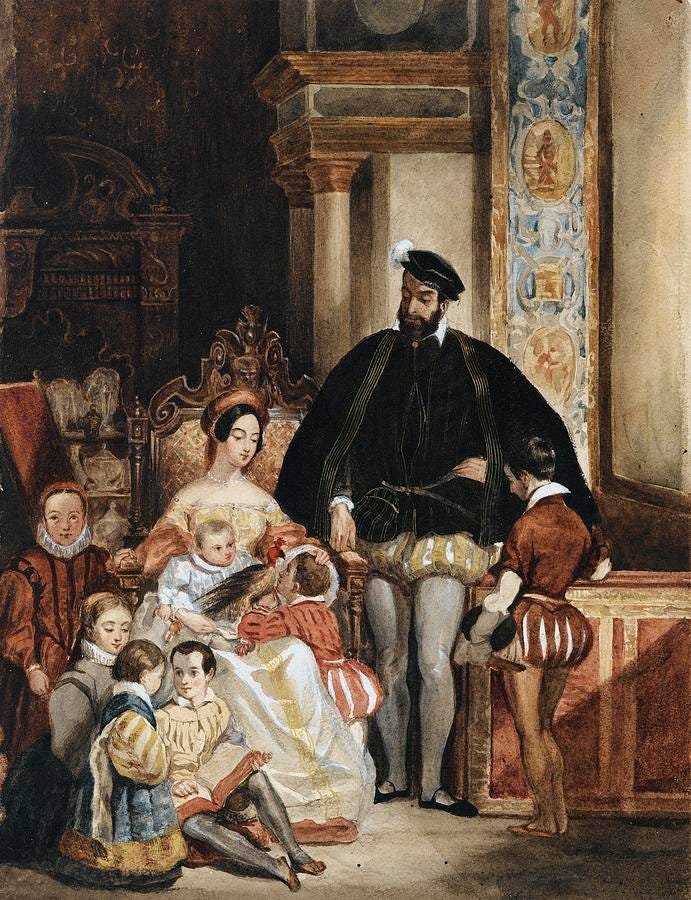If you prefer to read…
There is a transcript version of this essay available if you open this essay on desktop.
Below are some notes from my past and future selves for context, show notes, and a fact check.
Note from the future editor
December 3rd, 2024
There are a lot of things I would change about this essay if I were to remake it now, and there are many moments where I cringe when listening to my past self speak in this. For example, I use the word “crazy” without grounding it in any context around the historical significance of the word, beyond a quick, “and I don’t say this lightly”. As if that’s enough?? As if people know by default that, yes I know that word has been wielded to inflict violence and control on people trying to resist injustice throughout time. People just like me, not too long ago. In the past have felt very afraid to be seen as “crazy”, but at some point in my more recent years of learning I found solace while listening to Ismatu Gwendolyn’s readings of “How to Go Mad without Losing Your Mind: Madness and Black Radical Creativity” by La Marr Jurelle Bruce. If I could go back and rephrase that part, I would say something along the lines of:
“When you experience something so deeply, and everyone else seems to agree upon something different, it can make you feel crazy, but I’ve learned how standards of sanity are yet another tool of control set in place by systems of dominance and oppression. My body knows at a cellular level how wrong this world is, and I am pulled find solutions to these problems. I know this is so incredibly valid. I’m able to find comfort in knowing other ways of being have already been imagined and lived since time immemorial by historically marginalized communities, including Black, Brown, and Indigenous people, people of Color, femmes, elders, children, 2SLGBTQIA+ people, people with disabilities, sick people, and poor people. I feel honoured to explore and learn within these lineages of change-making. I want to come to this work humbly—I feel like an absolute baby child learning how to walk for the first time!!! My hope is that through my learning and stumbling and sharing, I might find connection with more people dreaming of change in this way.”
All that being said, I can’t discount how writing and sharing this project profoundly transformed my life. I connected with Trey Washington because of this essay; a teacher, a light, a creative force who has help to healed my soul in ways that baffle me on the regular. I know that this essay was part of what allowed me to co-create a beautiful relationship with Trey, and in doing so, it also allowed me to move closer to the world that I’m trying to co-create. There is much that I would change, but something about the spirit I embedded in this resonates with people who resonate with me. It has acted as a litmus test, a seed, a spell—I look forward to seeing where this essay carries me next!
If you’re feeling compelled by the ideas I cover in this audio essay, I hope it is only just the start of your journey. Here are some teachers I have looked to as I continue to learn: Mia Birdsong, Audre Lorde, Octavia Butler, bell hooks, Adrienne Maree Brown, Prentis Hemphill, Mariame Kaba, Dean Spade, and Trey Washington.
—kyla beck
Too long; didn’t listen
August 16th, 2023
I’ve been feeling dissatisfied with the structure of my community and had been growing increasingly frustrated with the fact that I didn’t feel like I had words to explain why. After much fixation and research, I now understand how my feelings are symptoms of much bigger, interconnected, systemic issues that—at least in part—are largely linked to the rise (and fall) of the nuclear family.
I think my heart has been low grade aching because of these systems for maybe my entire life??? And I didn’t know why until now. I find that understanding myself within the context of larger systems helps (and thank goodness these are just small, super cute, easy problems to solve for a curious girlie with a laptop and the internet!)
I figured I could ruminate on it, or I could try to offer solutions. I want to be part of the reconstruction of the world, as auntie Chani put it recently. So, hopefully this helps. My goal is to help three (3) people in my life get relationship anarchy-pilled (as one bestie put it), and I’ve already got at least two, so I think we can do it folks!!
Lmk if you’re bought in after this. For real. We can talk about it. I’ll call you or something. I am not kidding!!!
I do not say this because I’m trying to devalue my work, but because I respect this content and want to do it justice: this recording is not perfect, but I am exhausted and I am releasing control of it now. I almost didn’t post this, but a good friend said that if I didn’t it would be a disservice to myself, and I think he’s right. He said “it’s true to me and that’s good enough” (or something like that). Right before releasing this, Chani also said “enough is enough, time to get disruptive”. SO! I think I just need to put this out into the world and let it do what it’s here to do, you know???
If you listen to this, thank you so much. I genuinely really appreciate your curiosity and willingness to learn, or at least expose yourself to different perspectives. Okay that’s all. Ilysm!!!
In this essay I mention…
Paris is Burning (Documentary)
“Focusing on friendships helps us move beyond the confines of the nuclear family” by Ayesha Khan, PhD*
*I think the concept of “dynamics diversity” came from this piece, which I highly highly recommend reading if this stuff is interesting to you
“The Nuclear Family Was A Mistake” by David Brooks. (Article, The Atlantic)**
**Future editor’s note: I have since learned that David Brooks is a big time Zionist…... I think his criticism around the nuclear family is valid, but I know very little else about this man and I don’t want you to think I’m a big fan of his because of this essay!!! This is the source that I found most easily at a time when I was fiending for answers. Of course a man like this would be platformed. I’m always ISO similar/ related critiques by Black, Indigenous, POC, Femme, Disabled, and Queer folk. Feel free to send resources my way!!
“Platonic: How the Science of Attachment Can Help You Make—and Keep—Friends” by Marisa G. Franco PhD
“5 Myths We Tell Ourselves When We’re Dating” by Esther Perel and Mary Alice Miller
Dunbars Layers/ Circles (or, apparently) Numbers***
***I didn’t reference this exact article but BBC is usually a good source, so give it a go if you’re curious
The (Imperfect) Timeline I Made, (Figma)
(Lmk if I missed anything!)
Fact Check
1. Dunbar’s circles are apparently actually called Dunbar’s Number(s)? And there seems to be a lot of variance in the numbers/ names of the layers. The theory still is a useful lens though, imo.








Share this post